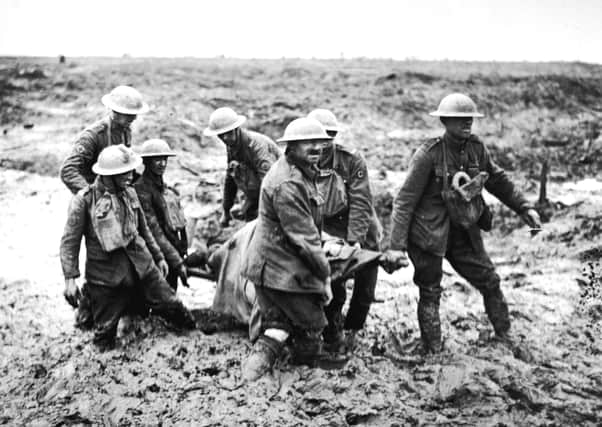THROUGH THE ARCHIVES: Germany must choose between war and peace


The ongoing Great War was the subject of an editorial published in the News Letter this day in 1918.
It read: “The rush of events is so rapid and the gravity of them so great, both in the field of the war’s diplomacy and military operations, that it is difficult to envisage them all and to sum up the mass effect. There is this, however, that can safely be said, the crisis of events running all in one way – against Germany, the only enemy Power still in the field – and as it runs its momentum is gathering fresh crushing power every hour. In the region of the war’s diplomacy the biggest event is the signature by General [Armando] Dias yesterday afternoon for an armistice with Austro-Hungary, which is to come into operation today at three o’clock. . . the Austro-Hungarian armies in the field no longer exist as a fighting force, and that the terms of the armistice. . . will amount practically to surrender, with all that surrender involves as a means towards the reduction of Germany’s military strength to the necessary yield point; that is if further pressure is required.”
Advertisement
Hide AdAdvertisement
Hide AdThe News Letter’s leader writer was confident that the end of the war was in sight: “The opportunity for the decisive battle is, therefore, fast ripening. Germany will have to make haste to secure an armistice if she wants her armies to escape the great movement of encirclement that General [Ferdinand] Foch is working out.”
Comment Guidelines
National World encourages reader discussion on our stories. User feedback, insights and back-and-forth exchanges add a rich layer of context to reporting. Please review our Community Guidelines before commenting.